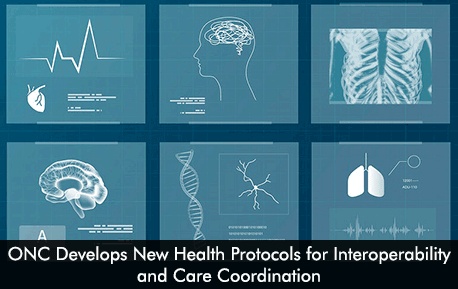The COVID-19 pandemic has stressed the importance of interoperability. If medical information cannot be easily accessed then this can result in difficulties inpatient care which can cause issues with public health surveillance. To improve interoperability options and enhance care coordination between healthcare professionals, ONC is working with health IT stakeholders to create two new health protocols, according to a blog post written by ONC officials.
ONC’s 360x and a Boost in Interoperability
The ONC’s 360x project aims to integrate Health Care Enterprise (IHE) International profiles that use health IT standards. This integration facilitates patient care transitions to be more efficient by reducing the amount of time. The patient care transitions consist of the following three groups; ambulatory referrals, acute and ambulatory transfers to skilled nursing facilities.
Seamless patient data exchange between healthcare stakeholders is vital to streamlined care coordination. Improved interoperability of COVID-19 health data can help protect clinical staff members and also make data readily accessible for decision-making. The acute ambulatory transfers to skilled nursing facilities will make way for care coordination and will be fruitful for clinical members.
ONC’s 360x Improves Accessibility to SDOH Data
ONC is also working on social determinants of health (SDOH) needs-based referrals use cases. The project has the goal to improve access to SDOH data which is present in Electronic Medical Records (EMR) software and EHR software solutions. The accessibility to SDOH data will help caregivers offer more patient-centered care and improve overall care delivery. SDOH provides insights related to non-clinical factors that have an influence on a patient’s wellbeing.
The group will close the referral loop with social entities to improve access to SDOH data within health IT workflows. Coded data elements will be identified and the development is also working to spot associated value sets which will show social determinants of health screening, diagnosis, planning, and mediations in health IT systems. This closely affiliates with the current work by the Gravity Project, a community-led HL7 Fast Healthcare Interoperability Resources Accelerator. The Gravity Project comprises over 1,000 healthcare stakeholders which include payers, patients, healthcare providers, health IT vendors, and community-based organizations.
Moving Ahead
Interoperability benefits healthcare systems by improving efficiency, reducing costs, enhancing patient care delivery, and more accurate public health data. When data can be exchanged seamlessly between systems and providers this will support care coordination resulting in improved patient care. The new health protocols developed by ONC will help both clinical staff and patients by providing a window to strengthen care coordination like never before.







